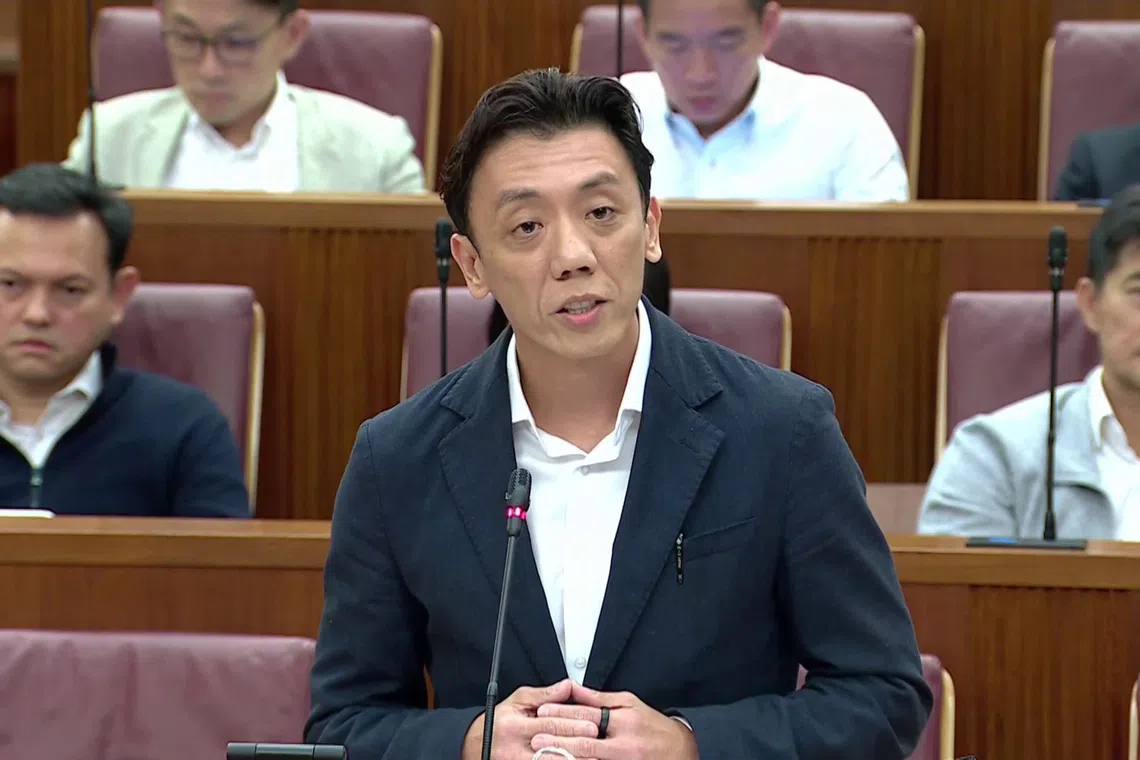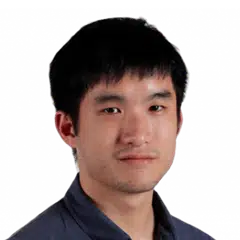Consultations for next land transport master plan to start in next few weeks: Jeffrey Siow
Sign up now: Get ST's newsletters delivered to your inbox

Acting Transport Minister Jeffrey Siow said on Sept 22 that his approach to policymaking is to build trust and create space for voices to be heard.
PHOTO: MDDI
- Public consultations for a new land transport master plan will begin in the coming weeks, engaging a bigger group of Singaporeans to shape future transport policy.
- The consultations come after an inclusive, "car-lite" vision was set out in the Land Transport Master Plan 2040, published in 2019.
- Acting Transport Minister Jeffrey Siow emphasised trust-building and open communication to find compromises and create new solutions.
AI generated
SINGAPORE – Public consultations on Singapore’s next land transport master plan will kick off in the next few weeks, with more people set to have a say in how the next bound of the Republic’s transport future will be shaped.
Acting Transport Minister Jeffrey Siow announced this in Parliament on Sept 22 during the debate on the President’s Address
“We want to engage more Singaporeans than ever before – commuters, drivers, cyclists, seniors, persons with disabilities, mobility device users. We want to bring all of them together to have deeper conversations and to weigh trade-offs,” said Mr Siow. “My hope is simple – that more Singaporeans feel that the system works for them and that their story matters.”
The last time such a consultation exercise was held was in 2018. Inputs from more than 7,400 Singaporeans at the time went towards the drawing up of the Land Transport Master Plan 2040, which was published in 2019.
The 2040 road map set out an inclusive, “car-lite” vision,
Key measures from the master plan being rolled out now include the expansion of the rail network, the building of more cycling paths, the upgrading of transport infrastructure, and a shift towards cleaner-energy vehicles.
Mr Siow, who is also Senior Minister of State for Finance, said on Sept 22 that his approach to policymaking is to build trust and create space for voices to be heard.
“This way, even issues that are divisive can be opportunities to build bridges,” he added, recalling his experience as a young civil servant at the Ministry of Transport working on the upcoming Cross Island Line, which had faced opposition from nature groups
While the arguments then were heated, a compromise was reached over how the MRT line would be routed, and the Land Transport Authority adopted more innovative and less invasive methods as a result, Mr Siow recounted.
“That experience has guided me since then – that trust can be built even when disagreements cut deep. But only if we all commit to staying at the table with the right heart and the right intent,” he added.
Since his appointment as acting transport minister in May, Mr Siow said he has heard personal stories about why some people feel the transport system is not working for them.
He gave the examples of a young couple who cannot afford a car and a single mother who uses an e-scooter to take her children to pre-school even though it is illegal.
But trade-offs are unavoidable in transport, Mr Siow told the House.
“In a compact country like ours, transport needs necessarily collide. Pedestrians and cyclists share the same pavement; cyclists and drivers share the same road. Everyone wants a bus stop just below their homes, but no one wants a bus that stops every 20m,” he said.
Mr Siow said his approach will be to explain the Government’s policy considerations openly and honestly. “I must show that our processes are fair, and my intentions are right.”
Earlier in the debate, Leader of the Opposition Pritam Singh had raised the subject of rail reliability, calling for Parliament to scrutinise the recent spate of disruptions, as well as the findings and recommendations by a task force that will be formed to tackle the issue.
“Many Singaporeans find the quick succession of breakdowns to be highly unusual, particularly after significant taxpayer resources have been expended to raise rail reliability over the last decade,” said the Workers’ Party chief.
To this, Mr Siow said he welcomed Mr Singh’s comments.
“My approach is to be open and transparent... In fact, I will welcome questions from all of us here in this chamber because good questions are not the sole province of the opposition, but the responsibility of all of us.”
Beyond building consensus, Mr Siow said Singapore must focus on creation, rather than division, to solve future problems.
“To ease the pressures of zero-sum choices, we must create new ground – new choices, new capacity, new options and possibilities,” he added, pointing to the introduction of self-driving vehicles
“In sea and air transport, we have done the same... With Tuas Port and Changi Terminal 5, we are once again building boldly, creating the capacity for decades to come,” he said.
On the economic front, Mr Siow said the same spirit of “creation” is being applied.
“We will place bigger bets on the industries of the future – advanced materials, robotics, precision medicine, space,” said Mr Siow, who co-chairs a government committee set up in August
“These bets may feel uncomfortable. Not everything will succeed,” he said.
“But if just one, two or three of these bets come good, they will transform our economy and carry Singapore to the next level.”
Mr Siow called on Singaporeans to support one another as a faster pace of economic change will bring more career transitions, and the need for reskilling and reinvention.
“Industries are only part of the story. What matters most is whether Singaporeans can step into these opportunities that we create,” he said.



